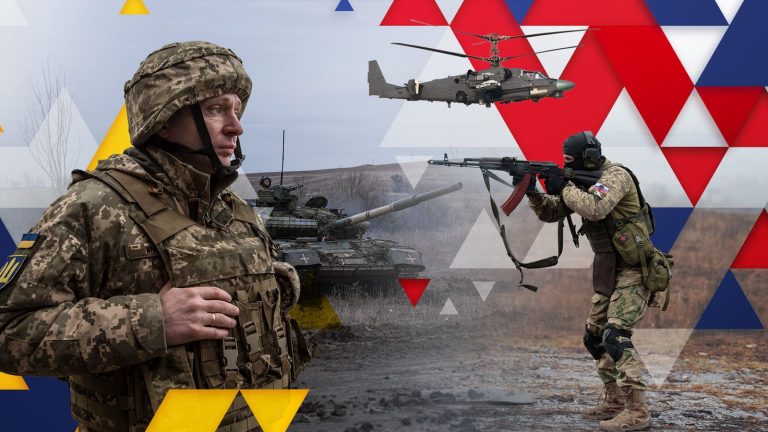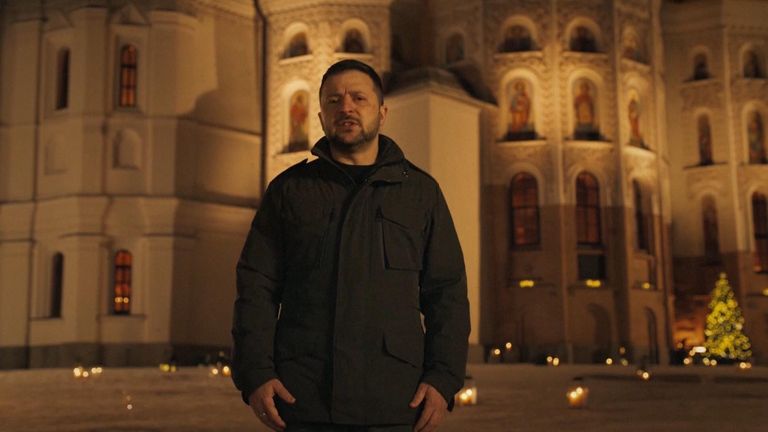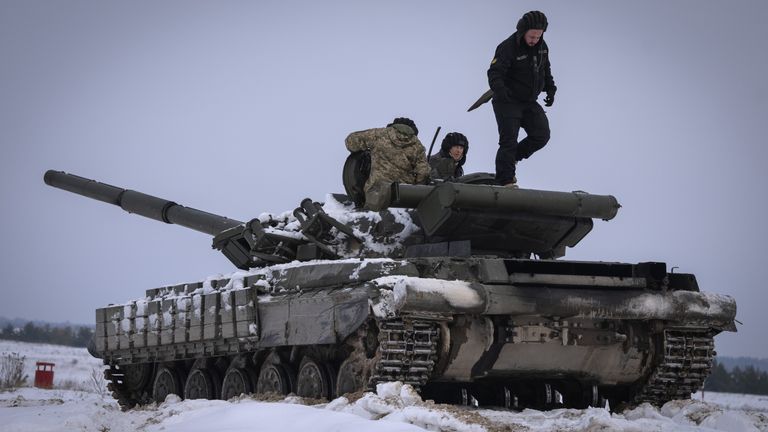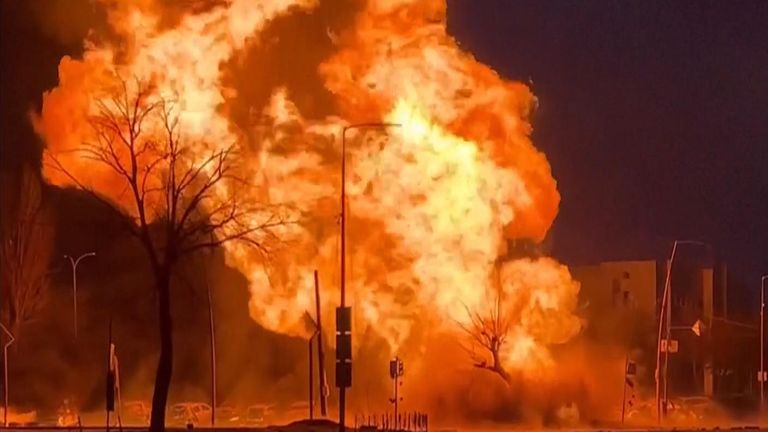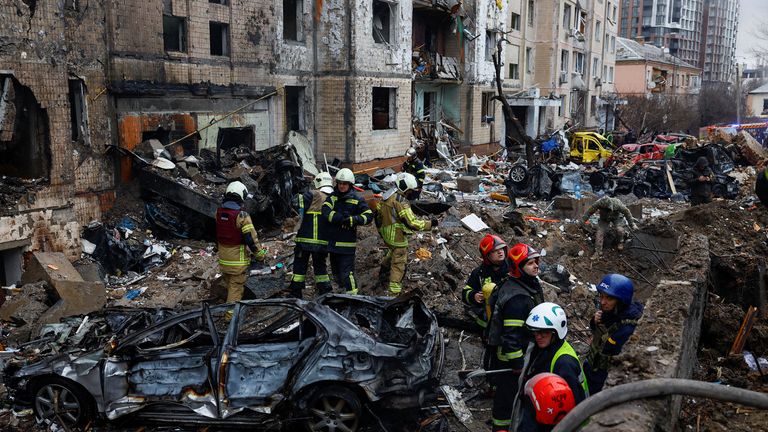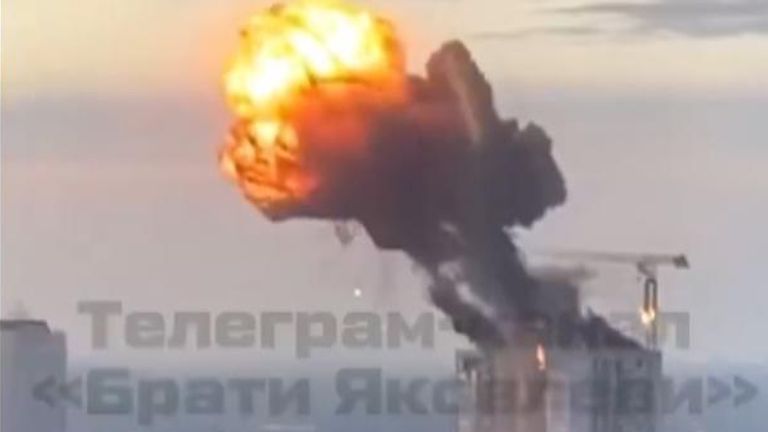Although Russia has much greater firepower, its illegal invasion of Ukraine did not go according to plan.
Although Ukraine was not a member of NATO, the West responded to President Volodymyr Zelensky's call for help by providing a large amount of high-tech weapons and munitions.
However, after nearly two years of high-intensity conflict, both sides were running out of ammunition.
The Russian-Ukrainian War – Latest Updates
Inspired by Ukraine After initial successes in liberating 12,000 square kilometers of occupied Kharkiv in September 2022, the West provided a massive amount of military supplies to support Zelensky's spring offensive.
However, despite months of intense fighting, the front lines have not moved significantly, and both sides need more firepower to achieve victory.
No country possesses sufficient stocks of war ammunition to meet the demands of a high-tempo war of attrition. Russia has always stockpiled basic weapons, and is believed to have started the war with several million artillery shells, but even these stockpiles are now running out.
Ukraine can't match Russia Weapons stockpiles, but Western support has focused on high-tech weapons that have provided Ukraine with a precision strike capability.
But these Western weapons came from existing stockpiles, and no country has the luxury of keeping more weapons than it needs. For this reason, every weapon donated to Ukraine increases the national security risk of the donor country.
Read more:
“Ukrainian drones shot down over Crimea”
Analysis: Deadly attacks are a bad omen for 2024
What went wrong in Ukraine in 2023?
By donating “old stockpiles” of weapons, the West saw that the costs and risks involved were manageable, but the supply was – unavoidably – limited.
To address the shortage of firepower, Russia has turned to North Korea to supply it with ballistic missiles and a million artillery shells, and repeat orders can be expected.
Iran is happy to supply larger drones and missiles, which may not be as capable or effective as their Western counterparts, but crucially they are now available. Russia has a huge defense industrial base that has turned to war, funded by huge oil revenues. Russia is rearming itself, and fast.
In contrast, Ukraine has a nascent industrial base that is highly vulnerable to Russian missile attacks — it takes months to build manufacturing capacity, and a single strike from Russia to destroy it. Ukraine hopes to manufacture one million drones next year, but it cannot match the capabilities of the Russian defense industry, and it does not have the necessary weapons to threaten the Russian industrial base.
Ukraine's GDP is also a small fraction of Russia's – £157bn versus nearly £1.6tn – so it is unable to compete with Russia's global purchasing power or national defense industrial capacity.
So where does this leave Ukraine? In the absence of significant and sustained Western military support, it is bound to be ultimately crushed by Russia's greater rearmament capacity.
Western stockpiles of demilitarized weapons are insufficient to meet Ukraine's needs, but the West has a much greater ability to mobilize its defense industrial base if it chooses to do so.
Earlier last year, the West promised Ukraine one million artillery rounds by March 2024. Although Western industry has the capacity to respond, this promise will not be kept.
Western political support for Ukraine remains strong, but this intent has not yet been matched by the required collective financial commitment.
Western defense planning assumed that permanent, high-intensity warfare was unlikely to be an issue in the near term, and that technology would provide it with an asymmetric military advantage.
However, specialized weapons are expensive and can only be purchased in relatively small numbers. They cannot be easily replaced because production lines only stay open until orders are met, and the technology quickly becomes obsolete.
Zelensky has always claimed to be fighting Russia on behalf of the West, without having to send fighters. But Ukraine cannot win without military (and financial) assistance.
An emboldened Putin may not pose a threat beyond Ukraine's borders in the very short term, but victory in Ukraine will inevitably lead to far-reaching consequences. What might China, which has its eyes on Taiwan, gain from such a victory?
The Ukraine war has exposed some serious shortcomings in the West's wartime assumptions. Unless it commits to a coordinated, long-term strategy to generate the weapons Ukraine needs – and urgently – it will give Putin the victory he craves.

